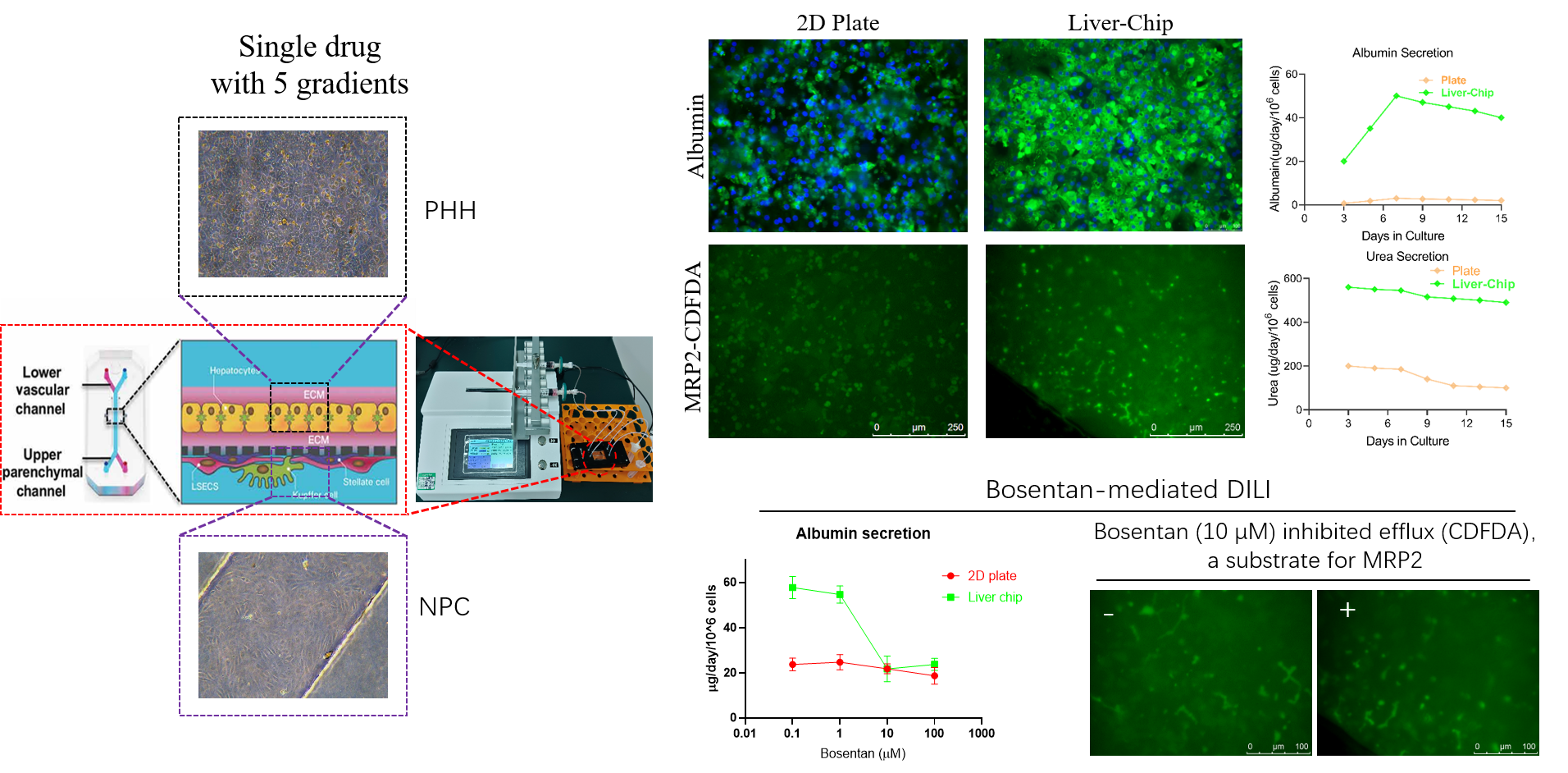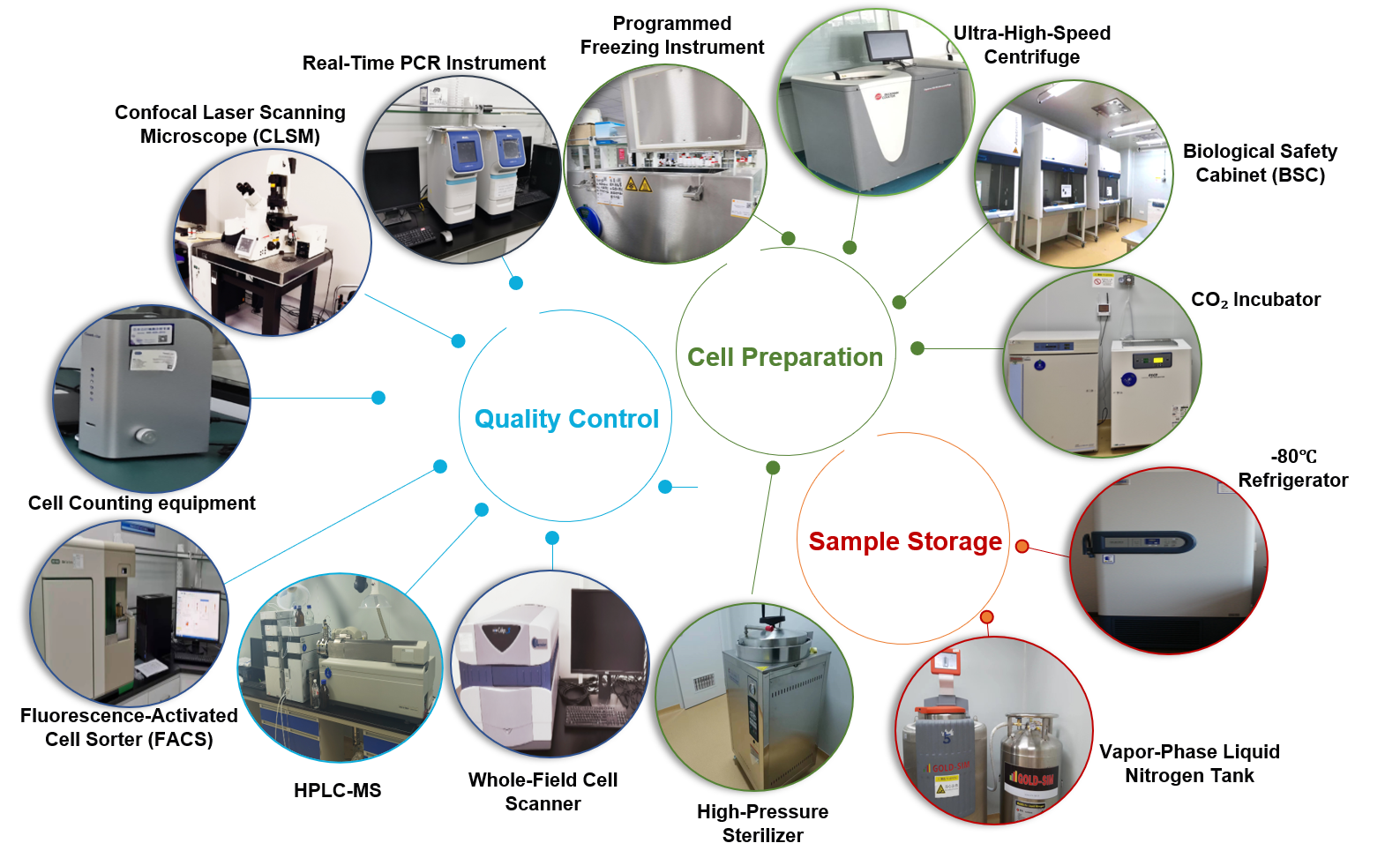Liver-on-a-Chip Drug Toxicity Evaluation
I. Service Overview
Organ-on-a-chip technology was recognized as one of the "Top 10 Emerging Technologies" by the World Economic Forum in 2016 and remains a core strategic technology in China’s biomedical sector. The liver-on-a-chip system consists of two microfluidic channels (etched into PDMS hydrogel) separated by a micron-scale semipermeable membrane. The upper and lower channels are seeded with hepatocytes and liver non-parenchymal cells (NPCs), respectively, mimicking the liver sinusoid structure and microenvironment. This platform addresses critical gaps in traditional drug development by enabling early detection of drug toxicity, shifting risk assessment to earlier stages, and reducing R&D costs.
By leveraging our domestically developed alternatives to primary hepatocytes and NPCs, we offer liver-on-a-chip services at 1/7th the cost (USD-to-RMB conversion), accelerating innovation in China’s biopharmaceutical industry.

II. Service Credentials, Facilities, and Team


III. Service Case Studies
Our liver-on-a-chip platform has been adopted by leading institutions, including:
The Chinese University of Hong Kong
Guangdong Pharmaceutical University
Shenyang Pharmaceutical University
Chinese Academy of Sciences Institute of Materia Medica
Accelerate Bio (YaoSu Tech)
Impact:







